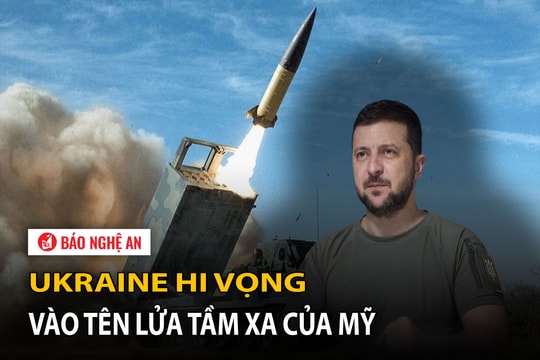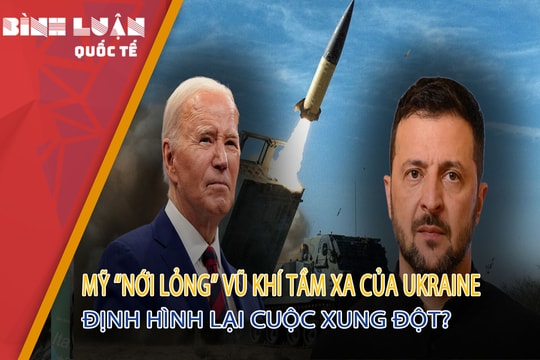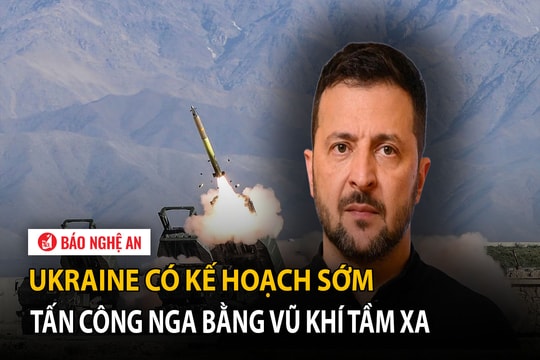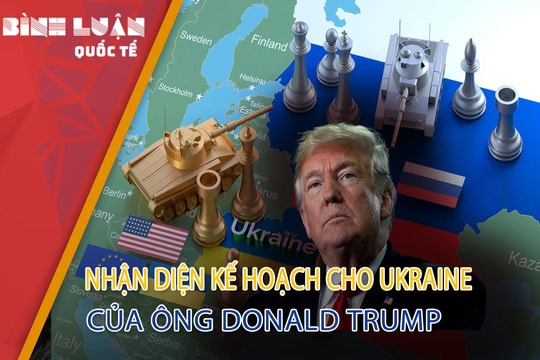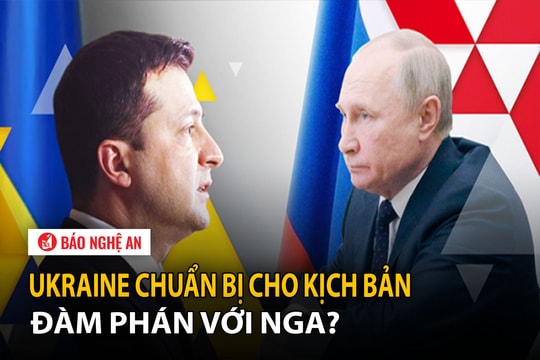US imposes "strong" sanctions, Russia and China consider military strategies
(Baonghean.vn) - The US imposes "strong" sanctions; Russia and China consider military strategies; How do Russians survive in Ukraine when Mr. Poroshenko "bans them in every way"?; Russia is determined to clarify the poisoning of former spy Skripal;... are the outstanding international news of the past 24 hours.
1. The US imposes "strong" sanctions, Russia and China consider military strategies
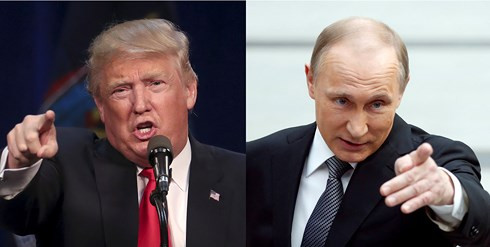 |
| US President Donald Trump is considering imposing additional sanctions on Russia. Photo: NYbooks. |
The Trump administration is planning to impose more sanctions on Russia, specifically targeting the country's tycoons, over allegations that Russia interfered in the 2016 US election and was behind the poisoning of former double agent Sergei Skripal.
The US move could put the relationship between Russia and the US on the brink of a cliff, which experts say is even more dangerous and potentially risky than the Cold War. In contrast to the US, China took this opportunity to show solidarity with Russia and affirm the close economic and military relationship between the two sides.
In fact, China needs Russia as an important partner to gain an advantage in the trade war with the US, as well as to increase its influence in solving the North Korea issue. Russia needs China to restrain the pressure of the US and the West in the diplomatic war. Many experts believe that cooperation between Russia and China will make the US and its allies wary./.
2. How do Russians survive in Ukraine when Mr. Poroshenko "bans everything"?
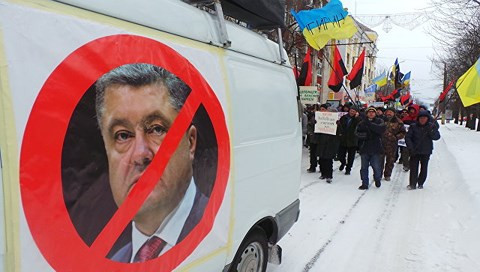 |
| How do Russians survive in Ukraine when Mr. Poroshenko "bans everything"? |
Russian speakers in Ukraine are currently suffering from anti-Russian policies, but there is hope that the situation will change for the better after the 2019 presidential election in Ukraine.
The Verkhovna Rada of Ukraine is planning to pass a law banning the use of any language other than Ukrainian in the service sector. This will directly affect at least six million Russian-speaking citizens in the country. However, mass protests are not welcome – arguing with the Ukrainian authorities is not a wise course of action.
Svetlana Nowicka, a lawyer from Kiev, said: Russian speakers are subjected to “Ukrainization” both morally and economically, but they want to “adapt” to the situation, not try to change it. This is particularly true of the trade in Russian-language books.
3. Russia determined to clarify the poisoning of former spy Skripal
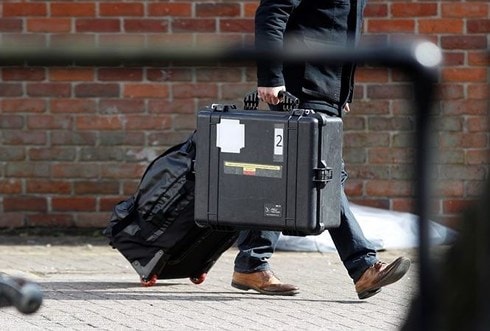 |
| OPCW experts arrive in Salisbury, where a former spy was poisoned in the UK, on March 21. Photo: Reuters. |
It is hoped that the diplomatic tension between Russia and the UK will soon end as the secrets behind the poisoning of former Russian spy Sergei Skripal and his daughter on British soil are gradually being clarified, with both victims of the poisoning showing signs of recovery.
Meanwhile, Russia is also clearly showing its determination to clarify the accusations against it in recent days, by requesting to convene a special session of the United Nations Security Council at 7:00 p.m. GMT on April 5, early this morning (Vietnam time).
Interfax news agency revealed yesterday (April 5) that Yulia Skripal, daughter of the former Russian spy poisoned in Salisbury (UK), called a cousin and said that both she and her father were recovering.
4. Malaysian Prime Minister announces dissolution of Parliament
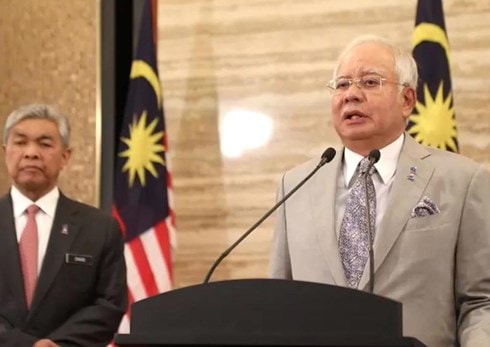 |
| Mr. Najib Razak announced on television the dissolution of parliament. |
Speaking on national television on April 6, Malaysian Prime Minister Najib Razak announced that he would dissolve parliament on April 7.
Najib Razak's five-year term ends on June 24. However, the prime minister can dissolve parliament at any time before the end of his term and call an election. Dissolving parliament paves the way for a general election that is considered the most difficult ever for Najib's long-time ruling coalition.
In his 25-minute televised speech, Mr. Najib gave reasons for the early dissolution of Parliament. Mr. Najib also spoke about the country's achievements under his government over the past five years as well as the initiatives his administration has taken.
5. Former President Park Geun-hye was sentenced to 24 years in prison
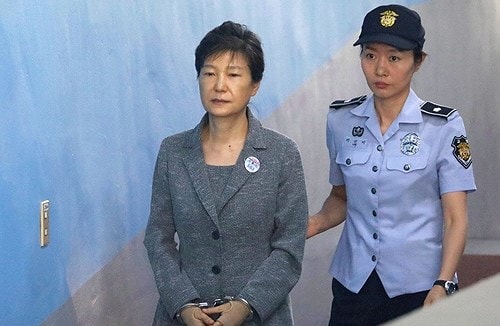 |
| Former South Korean President Park Geun-hye appears in court on August 25, 2017. Photo: EFE. |
A South Korean court sentenced Ms. Park to 24 years in prison in a corruption scandal that cost her the presidency last year.
In a televised trial, the Seoul Central District Court on April 6 declared Ms. Park guilty of 16 corruption charges, including bribery, coercion, and abuse of power, according toYonhapShe was sentenced to 24 years in prison and fined 18 billion won ($16.9 million).
She was found to have colluded with her old friend Choi Soon-sil to receive tens of millions of dollars from major conglomerates such as Samsung and Lotte, to help Choi's family and fund nonprofit foundations owned by Choi.
6. Protests are boiling again at the Israeli border, will Palestinian blood continue to be shed?
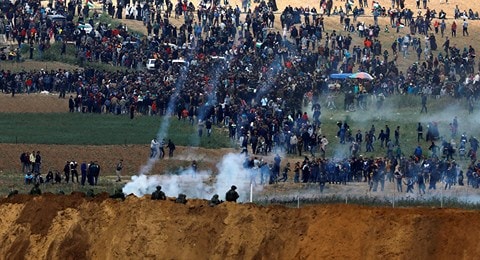 |
| Israeli soldiers used tear gas to disperse crowds of protesters from the Gaza Strip. |
According to Sputnik news agency, tens of thousands of Palestinians will continue to gather at the border area between Israel and the Gaza Strip on April 6 and this activity is expected to last until May 15.
Earlier, during the March 30 protest, the Israeli army used force to suppress the Palestinians present, with the reason that this protest was arranged by Hamas forces. According to a spokesman for the Gaza Strip's Ministry of Health, at least 15 Palestinians were killed and more than 1,500 others were injured on the first day of the protest.
Mr. Eric Goldstein, Deputy Director for the Middle East of Human Rights Watch (HRW), issued a press release saying that “Israeli soldiers not only used excessive force, but also acted on orders that forced Palestinians to respond in a bloody manner.”
7. Is Mr. Trump's announcement of withdrawing US troops from Syria just a "conspiracy"?
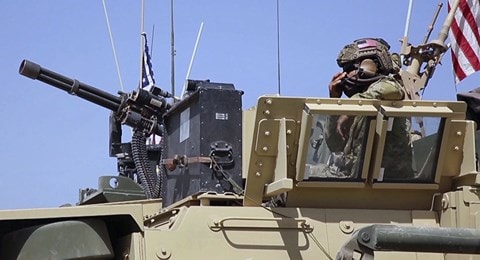 |
| US military operations in Syria. |
On April 5, Iranian Defense Minister Amir Hatami emphasized that President Donald Trump's announcement of an early withdrawal of US troops from Syria was just a "plot" by Washington.
“I was very surprised when I heard the statement from Mr. Trump because the US has a long-term plan to be present in Syria and wants to divide this country. When I heard the statement from Mr. Trump, I asked myself: Why did they make such an announcement? And from my point of view and experience, I think it is a new conspiracy,” RT quoted Mr. Hatami as saying on the sidelines of the Moscow Conference on International Security (MCIS).7th time
According to Hatami, after Trump announced that he would soon withdraw US troops from Syria, the US leader's top security generals made contradictory comments. This proves that the Trump administration is at odds with its policy regarding Syria.

